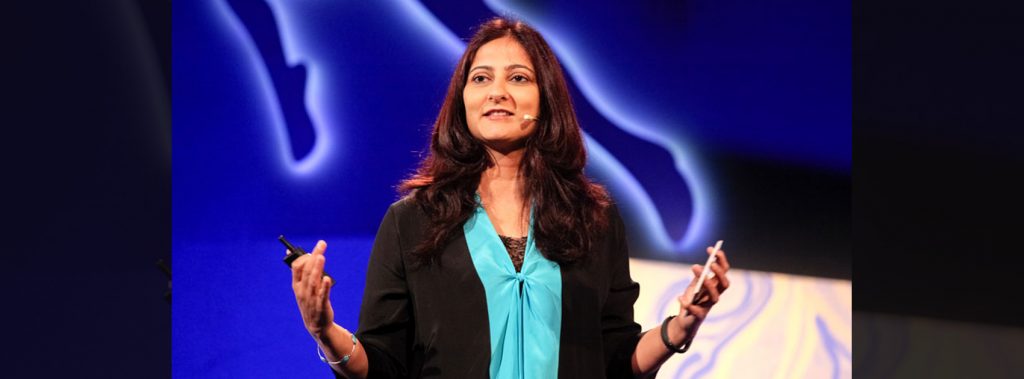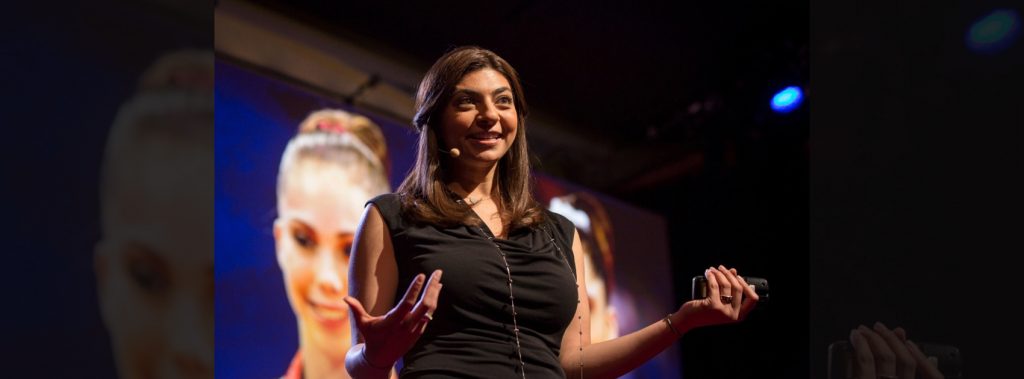Entrepreneur Stories
Women Scientists Turned Entrepreneurs

There are hundreds of innovations and discoveries born in the field of science and engineering every year in universities around the world. However, only a few of them are able to make it into commercial ventures. Today, we will be looking into women who turned their groundbreaking research into successful businesses.
1) Nina Tandon

Nina Tandon is a biomedical engineer and co founded the company Epibone. The main aim of the Company is to develop technology to develop bone reconstruction solution through stem cells. The Company creates bone tissues from a patient’s stem cells and grows them in vitro for use in bone grafts. Tandon serves as the CEO of Epibone and is also an adjunct professor of electrical engineering at the Cooper Union in New York. Tandon was named a TED Fellow in 2011 and a senior TED Fellow in 2012. In 2013, she received an award at the Marie Claire’s Women on Top Awards.
2) Anuradha Acharya

Anuradha Acharya is the founder and CEO of Mapmygenome, a company which focuses on preventive healthcare options through genome sequencing. She also founded another company called Ocimum Biosolutions, a genomics outsourcing company for discovery, development and diagnostics. In 2015, Mapmygenome made news for raising funds worth $ 1.1 million from a group of investors. Acharya was awarded the Entrepreneur of the Year award by the magazine Biospectrum in 2008. Her name was included in the 2018 W-power trailblazers by Forbes.
3) Sinead O’Sullivan

An aerospace engineer, Sinead O’Sullivan specialises in space technology and is currently the CEO of Avioptix, a company which captures, stores and analyzes real time data from satellites, drones and ground robotics. Her Company created the first ever platform to crowdsource drone data. Avioptix tailors their insights to the needs of their clients, supporting agriculture, oil and gas, insurance and NGOs.
4) Rana el Kaliouby

Rana el Kaliouby is a computer scientist and the co founder and CEO of Affectivia. Affectivia is an emotion measurement technology company which develops software to recognize human emotions based on facial expressions and physiological responses. As a research scientist at MIT, her initial focus was on ways to improve human-computer interaction, but she quickly realised the possibility of using the technology to improve human to human interaction, especially for those affected by autism. She was inducted into the Women in Engineering Hall of Fame and was mentioned in Forbes’ America’s Top 50 Women in Tech 2018.
These women serve as perfect examples and inspiration for women working in the STEM field to grow their research into a business empire. If we missed mentioning any such women scientists who turned into entrepreneurs, comment and let us know.
Entrepreneur Stories
Zupee Bolsters Short-Video Play with Vertical TV Acquisition Under INR 40 Cr

Delhi NCR-based gaming startup Zupee has acquired Mumbai-based microdrama platform Vertical TV in a deal valued under INR 40 Cr. This move strengthens Zupee Studio, its short-video arm launched in September 2025, by integrating Vertical TV’s expertise in bite-sized dramas like romance and thrillers.
Facing challenges from India’s 2025 real-money gaming ban, Zupee valued at $1 Bn after raising $120 Mn has pivoted to non-gaming content, including recent layoffs of 40% of its workforce. The acquisition builds on its November 2025 purchase of Australian AI firm Nucanon for interactive storytelling, targeting its 200 Mn+ users with engaging, mobile-first formats.
This deal underscores the rising microdrama trend in India, helping Zupee diversify amid regulatory pressures and compete in the short-video space dominated by quick, shareable content for on-the-go audiences.
Videos
T.N. Seshan: The Fearless Reformer Who Redefined Indian Democracy

T.N. Seshan’s name stands tall in India’s history as the man who transformed the nation’s electoral system with extraordinary courage and integrity. Born in 1932 in Kerala, Seshan grew up with values of discipline, education, and service to the nation — virtues that shaped his illustrious journey. From his early brilliance at Madras Christian College to his advanced studies in public administration at Harvard University, Seshan’s path reflected rare determination and intellect. Joining the Indian Administrative Service in 1955, he built a reputation as a no‑nonsense officer committed to efficiency and honesty, serving in key roles such as Secretary of Defense and overseeing vital national programs.
As the Chief Election Commissioner of India in 1990, T.N. Seshan sparked a new era of electoral integrity. In a system once marred by corruption, violence, and malpractice, Seshan brought order, fear, and respect through his groundbreaking reforms. He introduced voter ID cards, imposed strict spending limits on campaigns, and insisted on transparency at every level of the election process. Despite criticism from political circles that labeled him dictatorial, his relentless pursuit of fairness empowered every citizen to vote fearlessly. Under his leadership, the Election Commission became a symbol of strength and integrity in Indian democracy.
Seshan’s passing in November 2019 marked the end of an era, but his message continues to resonate across generations. Leaders from every corner of the country mourned the loss of the man who restored faith in free and fair elections. His enduring legacy reminds us that true leadership lies not in wielding power, but in serving people with honesty, courage, and conviction. T.N. Seshan’s life remains a timeless inspiration a reminder that democracy thrives only when its citizens are vigilant, responsible, and fearless.
Entrepreneur Stories
Indian Man Quits JPMorgan, Takes 70% Pay Cut to Launch $6 Million Startup

Leaving behind a high-paying job at JPMorgan, an Indian entrepreneur embraced a 70% salary cut to pursue true purpose and passion in the startup world. Disenchanted with what he described as a “robotic” corporate routine, he sought meaningful work that made a real impact. This pivotal decision marked the beginning of his new journey, one focused on value creation rather than titles and corporate perks.
Powered by resilience and fresh perspective, the entrepreneur launched his own startup, prioritizing innovation and hands-on solutions. The road was challenging, but his vision resonated with the market: the startup quickly gained traction and raised $6 million—an impressive acknowledgement of its potential in a competitive landscape. Every hard lesson from early setbacks and bootstrapping paid off in real customer growth and investor confidence.
Today, his journey stands as an inspiring example for professionals seeking authentic success outside the corporate grind. By trading comfort for creative freedom, he grew a venture that solves important problems, generates jobs, and builds wealth beyond just salary. For ambitious founders, his story highlights the power of risk-taking, adaptability, and relentless focus on impact in India’s thriving startup ecosystem.













J88
November 5, 2025 at 4:53 pm
Đến với J88, bạn sẽ được trải nghiệm dịch vụ cá cược chuyên nghiệp cùng hàng ngàn sự kiện khuyến mãi độc quyền.
GO88
November 8, 2025 at 12:42 pm
Tham gia cộng đồng game thủ tại Go88 để trải nghiệm các trò chơi bài, poker phổ biến nhất hiện nay.
站群程序
November 9, 2025 at 10:24 am
采用高效谷歌站群策略,快速提升网站在搜索引擎中的可见性与权重。谷歌站群
ios超级签
November 14, 2025 at 12:41 am
苹果签名,苹果超级签平台,ios超级签平台ios超级签苹果企业签,苹果超级签,稳定超级签名
MM88
November 15, 2025 at 1:08 pm
Với giao diện mượt mà và ưu đãi hấp dẫn, MM88 là lựa chọn lý tưởng cho các tín đồ giải trí trực tuyến.
iwin
November 21, 2025 at 11:10 am
iwin – nền tảng game bài đổi thưởng uy tín, nơi bạn có thể thử vận may và tận hưởng nhiều tựa game hấp
Kuwin
November 22, 2025 at 2:52 am
kuwin sở hữu kho game đa dạng từ slot đến trò chơi bài đổi thưởng, mang đến cho bạn những giây phút giải trí tuyệt vời.